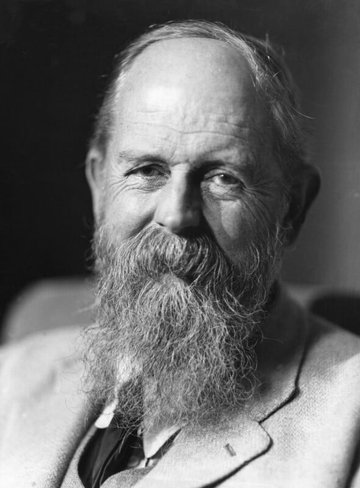
C. F. Andrews
‐
Anglican priest and missionary, educator, author and a supporter of Indian Independence
Other names
Charles Freer Andrews
Charlie Andrews
Place of birth
Place of death
Calcutta, India
About
C. F. Andrews was ordained as an Anglican priest in 1897. In 1904, Andrews went to Delhi as a missionary to take up a post at St Stephen's College where he soon became Principal. He supported the appointment of S. K. Rudra as Principal of St Stephen's College in 1907, the first Indian Principal. In 1912 Andrews returned to England and met Rabindranath Tagore at William Rothenstein's house in London. This began a friendship that led Andrews to base himself in Santiniketan from 1914, having renounced his priesthood in the same year. Andrews was involved in the editing of various Tagore publications and acted as his representative to the publisher Macmillan. Before this, in 1914, Andrews went to South Africa and met Mohandas Gandhi. They too became close friends.
Andrews became involved with the Indian National Congress and travelled the world to investigate the conditions of Indians in places such as Fiji, Kenya and Guiana. In 1931 he accompanied Gandhi to the Second Round Table Conference in London. He wrote a number of books on India, Gandhi and Christ. Andrews returned to the Anglican Church in 1936. The royalties from his autobiography, What I Owe to Christ (1932), were donated to Tagore's ashram in Santiniketan.
Muirhead Bone, Mukul Dey, Mohandas K. Gandhi, W. W. Pearson, William Rothenstein, Rabindranath Tagore, Edward J. Thompson.
Christ and Labour (London: Student Christian Movement, 1924)
The Opium Evil in India (London: Student Christian Movement, 1926)
Letters to a Friend: Rabindranath Tagore's Letters to C. F. Andrews (New York: The Macmillan Company, 1928)
Mahatma Gandhi at Work (New York: Macmillan, 1931)
Christ in Silence (London: Hodder & Stoughton, 1933)
What I Owe to Christ (London: Hodder & Stoughton, 1932)
Christ and Prayer (London: Student Christian Movement, 1937)
Sadhu Sundar Singh (London: Hodder & Stoughton, 1937)
The Rise and Growth of Congress in India ( London: George Allen & Unwin, 1938)
The True India: A Plea for Understanding (London: Allen & Unwin, 1939)
The Good Shepherd (London: Hodder & Stoughton, 1940)
The Sermon on the Mount (London: Allen & Unwin, 1942)
Mahatma Gandhi's Ideas (New York: The Macmillan Company, 1949)
Chaturvedi, B. and Sykes, M., Charles Freer Andrews (London: Allen & Unwin, 1949)
Gandhi, Leela, Affective Communities: Anticolonial Thought and the Politics of Friendship (Delhi: Permanent Black, 2006)
Gracie, David M. (ed.) Gandhi and Charlie: The Story of a Friendship (Cambridge, MA: Cowley, 1989)
O'Connor, Daniel, A Clear Star: C. F. Andrews and India 1904–1914 (New Delhi: Chronicle Books, 2005)
Tinker, Hugh, The Ordeal of Love: C. F. Andrews and India (Delhi: Oxford University Press, 1979)
Tinker, Hugh, ‘Andrews, Charles Freer (1871–1940)’, Oxford Dictionary of National Biography (Oxford University Press, 2004) [http://www.oxforddnb.com/view/article/38830]
Visvanathan, Susan, 'S. K. Rudra, C. F. Andrews, and M. K. Gandhi: Friendship, Dialogue and Interiority in the Question of Indian Nationalism', Economic and Political Weekly (24 August 2002), pp. 3532–41
Bishop's College, Kolkata
Correspondence with E. J. Thompson, Bodleian Library, Oxford
Correspondence and papers, Mss Eur D113, Asian and African Studies Reading Room, British Library, St Pancras
Gandhi Smarek Sanghrahlaya Samiti, Rajghat, Delhi
Correspondence, National Archives of India, New Delhi
Correspondence with Gandhi and Tagore, McGregor-Ross Collection, Rhodes House, Oxford
Deenbandhu Memorial Papers, St Stephen's College Library, Delhi
Tagore Archives, Visva-Bharati University, Santiniketan
Image credit
Charles Freer Andrews by Howard Coster, half-plate film negative, 1935, NPG x2453
© National Portrait Gallery, London, Creative Commons, http://creativecommons.org/licenses/by-nc-nd/3.0/
